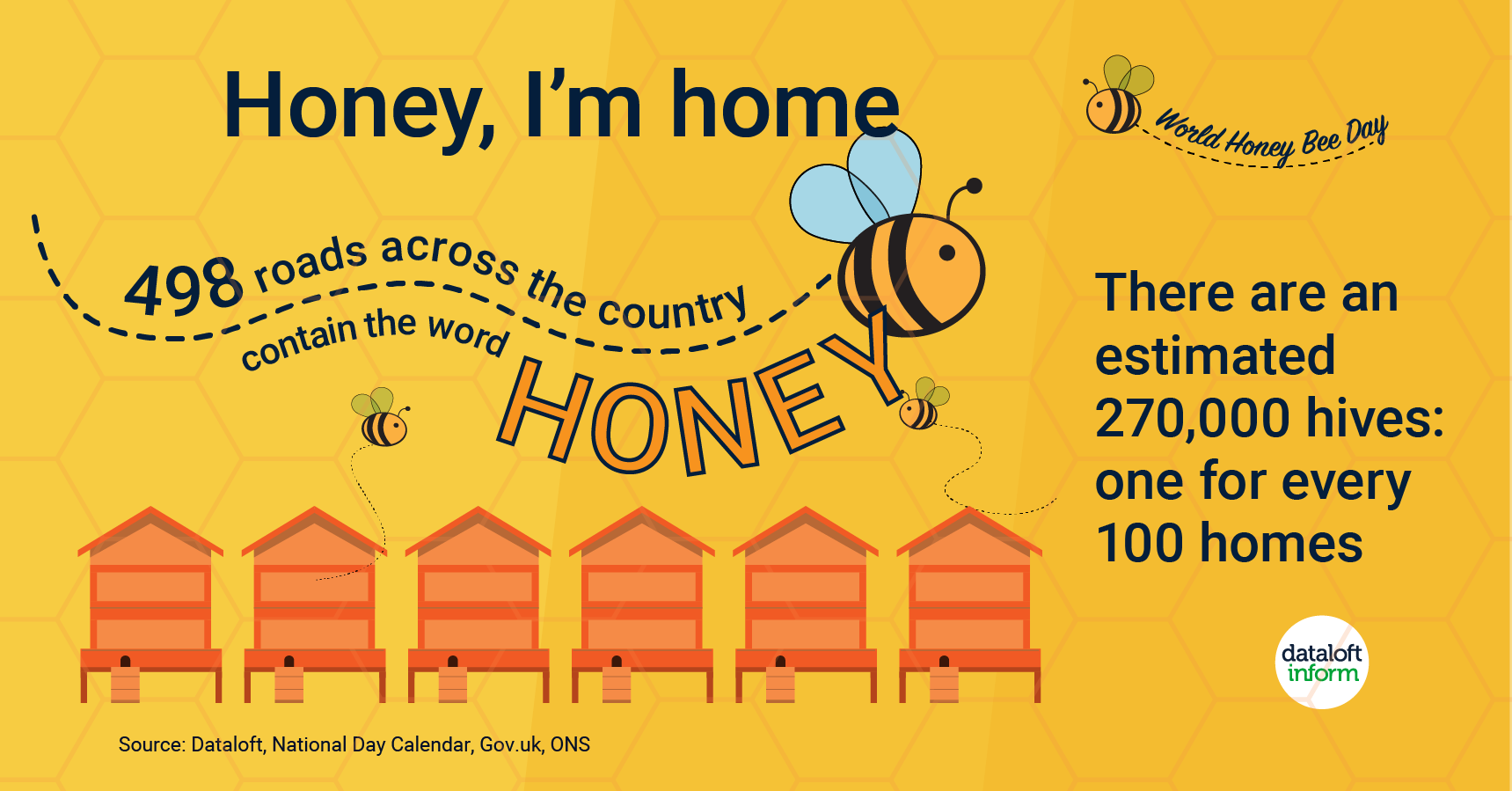
Every year, on the third Saturday of August, a sweet and vibrant celebration takes place around the world. World Honey Bee Day, dedicated to these incredible pollinators, brings together beekeepers, honey enthusiasts, and nature lovers alike. The event shines a spotlight on the importance of honey bees and their role in our ecosystem, while also encouraging actions to protect and support these remarkable creatures.
The Fascination with Bee-Related Addresses
As the world comes alive with the vibrant colours and scents of blooming flowers during the summer months, it's only fitting that many home addresses also feature bee-related names. Across the country, there are a remarkable 498 roads that proudly display the word 'Honey' in their names. These buzzing addresses not only add a touch of whimsy to our maps but also remind us of the intricate relationship between bees, nature, and our communities.
A Decade of Honey Bee Celebration
World Honey Bee Day, which began in 2009, has quickly grown into a global phenomenon. What started as a grassroots initiative has evolved into an annual event that brings awareness to the invaluable role honey bees play in our lives. The day highlights not only the production of delicious honey but also the critical role honey bees play in pollinating the plants that provide the food we rely on.
A Crucial Mission: Protecting Our Pollinators
The significance of honey bees goes beyond the production of a delectable natural sweetener. These industrious insects are vital pollinators, ensuring the reproduction of numerous plant species. According to estimates, over 75% of the world's food crops depend, to some extent, on pollination. In the United Kingdom alone, there are approximately 270,000 hives, equivalent to one hive for every 100 households, underlining the widespread appreciation for these tiny but mighty creatures.
Supporting Honey Bees and Preserving Biodiversity
World Honey Bee Day serves as a reminder that each individual action can collectively make a significant impact. There are several ways that everyone can contribute to the well-being of honey bees and the broader ecosystem:
Planting Pollinator-Friendly Flowers: Honey bees thrive on nectar-rich blooms. By planting flowers like lavender, bluebells, and wildflowers in your garden or community spaces, you can provide essential sustenance for these vital pollinators.
Choosing Locally Sourced Honey: Opting for locally sourced honey not only supports local beekeepers but also encourages sustainable beekeeping practices. Additionally, consuming local honey may have potential health benefits, such as alleviating allergies.
Raising Awareness: Educating others about the importance of honey bees and their impact on food production and biodiversity can create a ripple effect of positive change. Sharing information through social media, community workshops, and school programs can all contribute to a greater understanding of these essential insects.
Reducing Pesticide Use: Chemical pesticides can harm not only pests but also beneficial insects like honey bees. By adopting natural and sustainable pest control methods, we can create a safer environment for all.
World Honey Bee Day is more than just a celebration of honey; it's a celebration of the interconnectedness of all living beings in our ecosystem. From the buzzing streets named after these beloved insects to the efforts to protect and support their populations, this day serves as a reminder of the vital role honey bees play in our lives. By taking small but meaningful actions, we can ensure a brighter and more sustainable future for both honey bees and ourselves.
Sources: #Dataloft, National Day Calendar, Gov.uk, ONS









